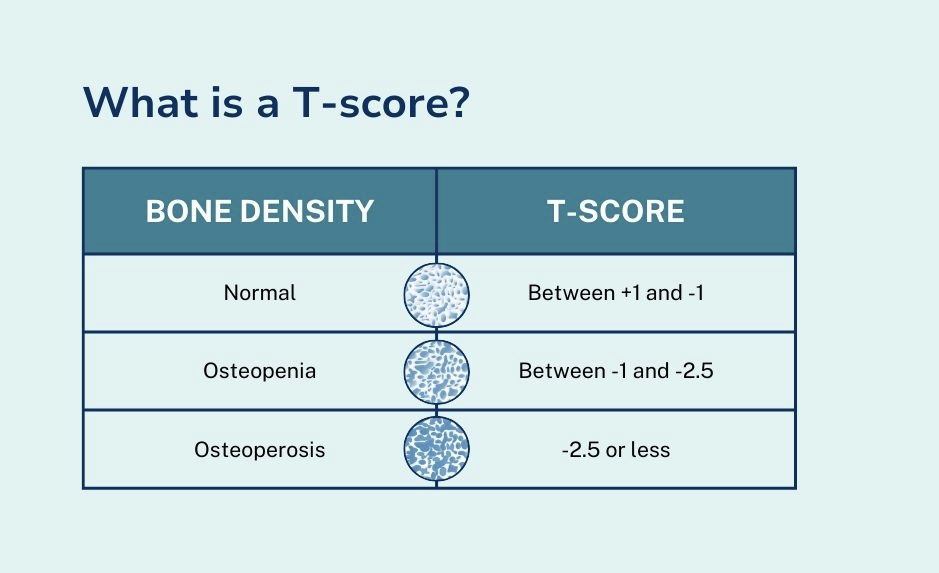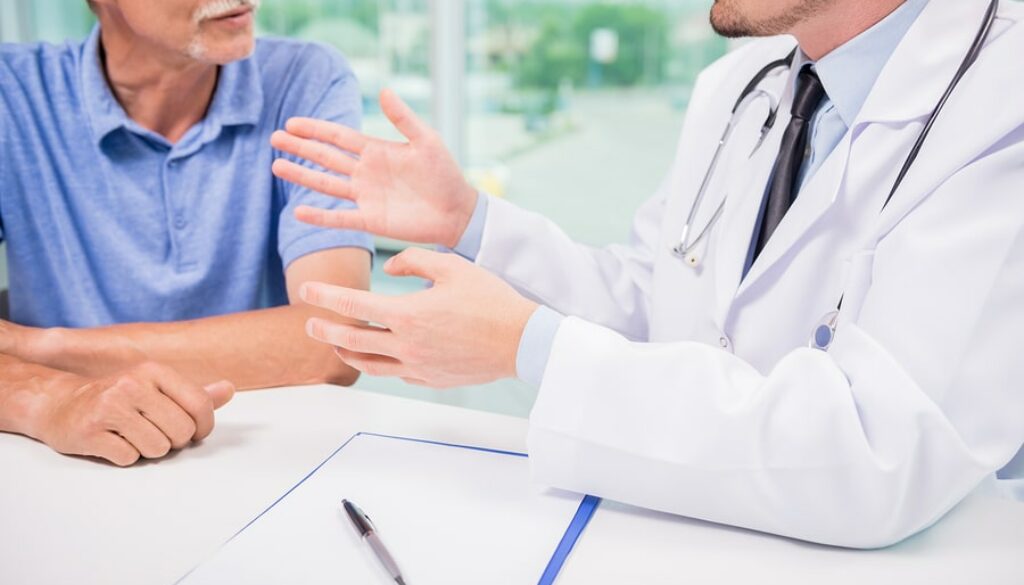What the Results of Your Bone Density Test Mean
Every three seconds, someone breaks a bone due to osteoporosis, according to information from the International Osteoporosis Foundation. These fractures can be prevented through regular bone density testing. These scans determine your risk of developing osteoporosis and help us decide upon the best course of treatment to ensure your bones remain healthy.
What is osteoporosis?
Your bones are filled with living tissue, and new bone is created throughout your life. Osteoporosis is a disease that occurs when your body reduces the amount of bone it produces, which weakens your bones, making them brittle and vulnerable to serious fractures. It’s often called a “silent disease” because most people don’t even know they have it until they break a bone… and it can sometimes still go undiagnosed after that.
However, if identified early, osteoporosis is easily treated, preventing serious and potentially debilitating fractures. In order to properly diagnose osteoporosis, one of our general practitioners in Raleigh will conduct a bone density test, also known as a bone density scan.
What is a bone density scan?
A bone density scan is a painless exam where we use a dual energy X-ray absorptiometry (DXA) machine to determine the health and strength of your bones. This helps us detect the early stages of osteoporosis or osteopenia. Osteopenia means your bones are weaker than what is considered normal, but not weak enough for you to be diagnosed with osteoporosis.
Bone density scans also help us monitor progress of osteoporosis treatment. Regular X-rays are not used for a bone density test because they cannot determine the earlier stages of osteoporosis.
Who should have a bone density scan?
As you age, you should consult with one of our physicians to determine if a bone density scan should be a part of your yearly physical. It’s particularly important if you have one of the following risk factors:
- You have thyroid problems.
- You’ve had bariatric surgery or a have a condition that affects the way your body absorbs nutrients.
- You’ve become shorter as you’ve aged.
- You currently have or have been treated for an eating disorder.
- You live a sedentary lifestyle.
- You’ve recently fractured a bone.
- You are on high-risk medications, such as long-term use of steroids.
- You’re over the age of 50.
Check out one of our previous posts for more information regarding the reasons that you may need a bone density scan.
What do the results of my bone density scan mean?
The results of your scan include a T-score and a Z-score. These help us quantify your bone loss and compare the results to other people in your demographic.
WHAT IS A T-SCORE?
The T-score measures your current bone density. The below chart breaks down how T-score results are interpreted:

WHAT IS A Z-SCORE?
According to the Mayo Clinic, the Z-score compares your score with what would be considered normal for someone of your height, weight, gender and other demographics. If this score is extremely different than the average, it is an indication of osteoporosis, and we will work with you to develop a treatment plan.
How is osteoporosis treated?
Osteoporosis can be treated by using a combination of medication and lifestyle modifications. These treatments include:
- Bisphosphonate medication
Medicines such as Fosamax, Boniva and others limit the breakdown of bone, according to information from the Mayo Clinic. - Exercise
Exercise slows bone loss. One of our internal medicine physicians will be happy to work with you to create an exercise plan that is both safe and effective. - Medication that modifies your parathyroid hormone (PTH)
PTH helps maintain your calcium balance, and these medications can help you build new bone. - Hormonal adjustments
A class of drugs called SERMs regulates estrogen and can mimic the benefits of estrogen to help increase bone density in postmenopausal women. - Nutritional counseling, if appropriate
This will correct nutritional deficiencies and prevent further bone loss.
Raleigh Medical Group offers bone density scans and effective treatment for osteoporosis
Untreated osteoporosis can cause injuries that seriously damage the quality of your life. We want to help safeguard your health so you can keep doing the things you enjoy most. We’ve been a trusted member of the community for more than four decades, and our internal medicine doctors will be happy to speak with you and address any concerns you have, including scheduling a bone density scan and discussing your individual results and treatment plan. Contact us to schedule an appointment.
For more than 40 years, Raleigh Medical Group has served as the Triangle area’s premier internal medicine provider. Comprised of three distinct practices: Raleigh Medical Group, Cary Medical Group and Raleigh Adult Medicine, we tailor our treatments to provide the finest personalized health care available for each stage of your adult life. Contact us to schedule an appointment.




